Netflix has a well-earned reputation for quality original series, from "Orange is the New Black" to "Bojack Horseman." "Stranger Things" continues its tradition of well-rounded characters and emotional complexity, but it's an entirely new breed. It's a fantastic exercise in dichotomy, with an atmosphere at once warm and utterly, unflinchingly chilling. Almost all of its characters are in some way morally grey, reacting realistically to incredibly difficult situations. Other shows have managed this as well, but "Stranger Things" is something special. Here's why.
1. It fulfills nostalgic tropes without falling prey to stereotypes.
In less aware hands than the Duffer Brothers, "Stranger Things" could have been a much less interesting series. The show is indeed reliant on fulfilling specific tropes, but its true power comes from subverting viewer expectations. Name an '80s movie or horror stereotype, "Stranger Things" likely has a dupe at first glance. Where it grows beyond its genre is in the subtlety of its characters. Nancy Wheeler is no prissy suburban princess, Joyce Byers isn't a helpless shell of a mom and El is sure as hell no ax-crazy telepath.
While the Duffer Brothers wanted to create a fun and spooky show, the characters were always intended to be its heart. Regarding the centrality of its characters, Matt Duffer stated, "I love monsters and I love the supernatural, but I also don’t give a shit about it if it’s not in a story where I also care about the characters and the story and the town." "Stranger Things" resolves many characterization issues plaguing modern horror movies like "Paranormal Activity" without sacrificing the terror at the heart of the story.
2. It's incredibly atmospheric.
"Stranger Things" really, really revels in its setting. From costumes to soundtrack, everything about it feels '80s. Its environments are also so lush that changes in scenery often result in whiplash. One moment, you're with the kids in a believably grimy middle school, and the next you're with Joyce Byers in her ominous but beautiful Christmas light-filled living room. The next, you're in the familiar, but deeply horrifying, Upside Down.
It's also very linked to its time period; every episode is more and more loaded with the claustrophobic effects of the Cold War. The events of the series were triggered by a desperate attempt to get the jump on the "commies," with grave consequences for the innocent residents of Hawkins. Adding to this are the incredible amount of references packed into each frame; from "E.T." to "A Nightmare on Elm Street," the series manages to put in plenty of Easter eggs without feeling corny or forced.
3. The kids actually act like kids.
Too often when media like "Stranger Things" features preteens, they act like 45-year-old detectives with whisky issues stuffed into the bodies of 12 year olds. And let's be real, the "precocious genius kid" trope has gotten a little old. So it's refreshing that Mike, Lucas, Dustin and even El are allowed to be impulsive and emotional without compromising the plot too much. Moreover, it lets them be goofy and have fun.
The teens are also pretty realistic – without giving much of the plot away, Steve, Nancy, Johnathan and even Barb are allowed to make bad judgement calls and even behave cruelly, as teenagers often do. Most importantly, they react realistically in terrifying situations – with hysteria, fear and sadness – before they pull themselves together.
4. The villains are horrifying.
Without mentioning spoilers, the villains of "Stranger Things" fall into two distinct categories, both equally chilling. One is an amoral government agency, and the other is a nightmarish void monster.
While the demogorgon is terrifying in a more traditional horror sense, complete with jump scares and hideous special effects, the Agency is that much more chilling because it's based partially in fact. Project MK-ULTRA, featured in the show, was a real-life series of experiments that attempted to awaken psychic powers in human beings. As outlined above, the mysterious Agency began human experiments in an effort to combat sinister Russians, seen only in the series in a literal shadow realm. Its fitting, then, that the true threat came not from the communists, but from within.
5. It transcends genre.
While recalling many childhood favorites, "Stranger Things" really is the first of its kind. Its foundation is movies like "The Goonies" and "The Breakfast Club," and it resonates with the nostalgia of its viewers. But rather than rely on narrative expectations, it defies them.
As outlined in this brilliant post, the characters in "Stranger Things" belong to three separate groups, with three separate genres. With the boys and El, we have a surreal coming-of-age feature, with misfit preteens banding together against a very unjust adult world. Nancy, Jonathan and Steve belong in a teen horror film, showcasing cliques and monster hunting. Hopper and Joyce fit neatly into the conspiracy / thriller "maverick vs shady government" subset.
What makes "Stranger Things" special is that it celebrates its character's quirks rather than shaming them. In a lesser series, Nancy would have been offed for her burgeoning sexuality and Joyce written off by every character for her apparent delusions. Instead, because of their unique features, each character is necessary to advancing the plot. Ultimately, resolution is only possible when every group is reunited.




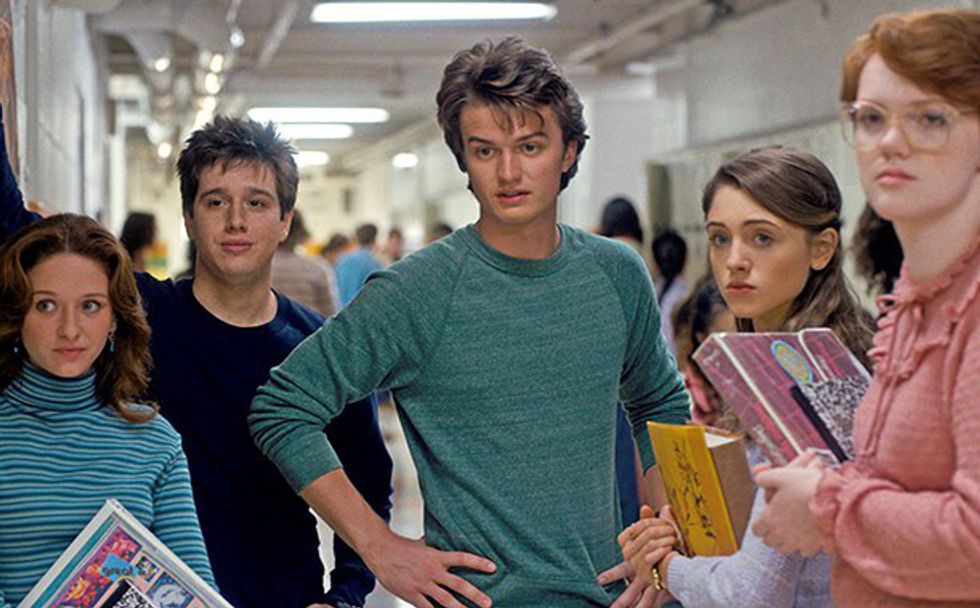
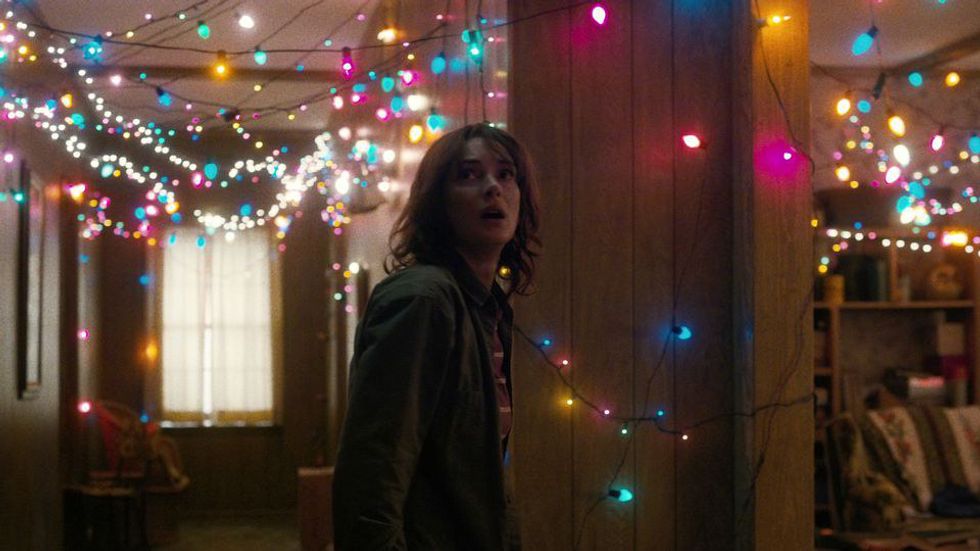
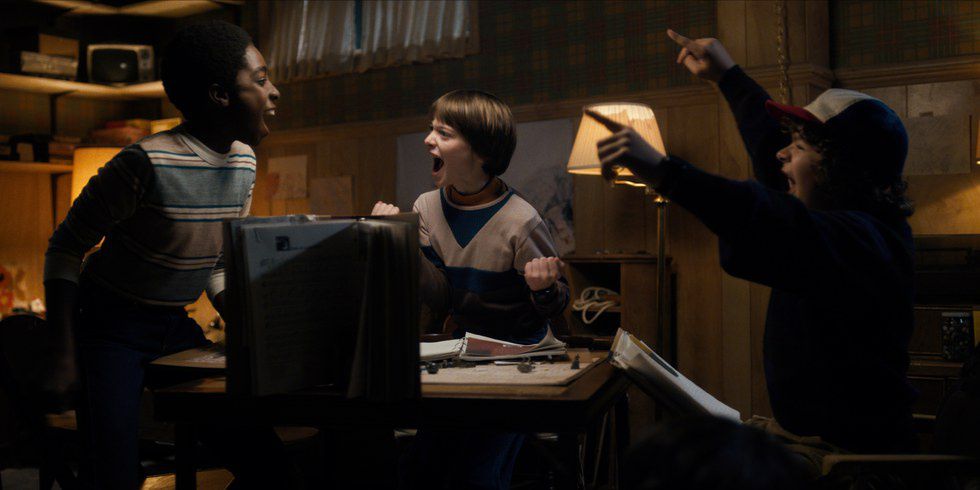
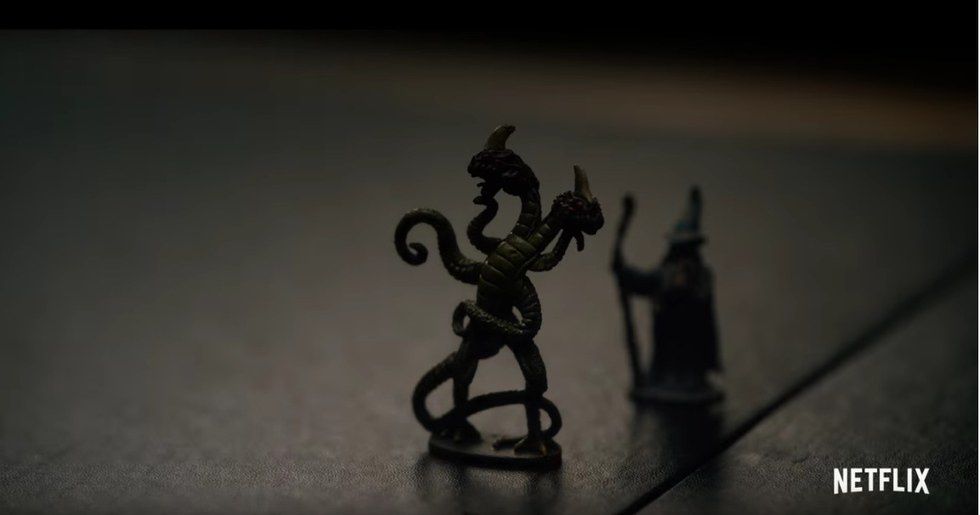
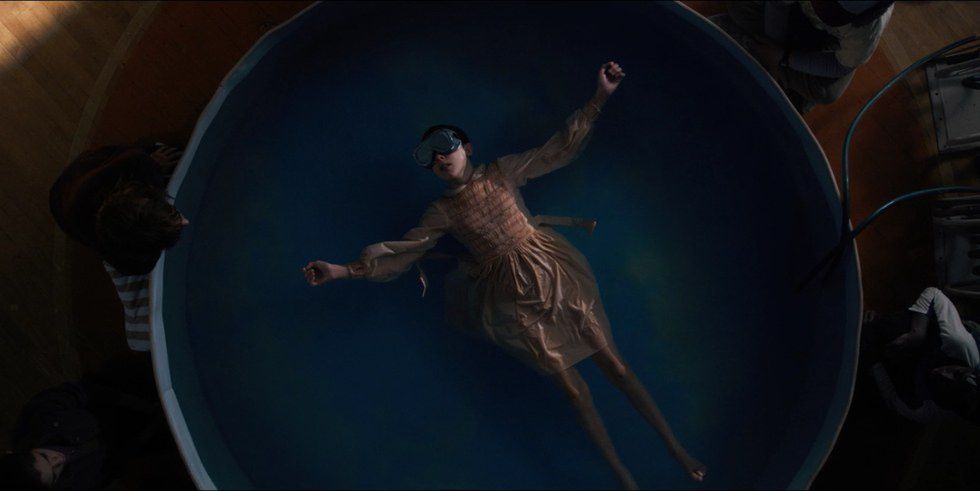


 Energetic dance performance under the spotlight.
Energetic dance performance under the spotlight. Taylor Swift in a purple coat, captivating the crowd on stage.
Taylor Swift in a purple coat, captivating the crowd on stage. Taylor Swift shines on stage in a sparkling outfit and boots.
Taylor Swift shines on stage in a sparkling outfit and boots. Taylor Swift and Phoebe Bridgers sharing a joyful duet on stage.
Taylor Swift and Phoebe Bridgers sharing a joyful duet on stage.












